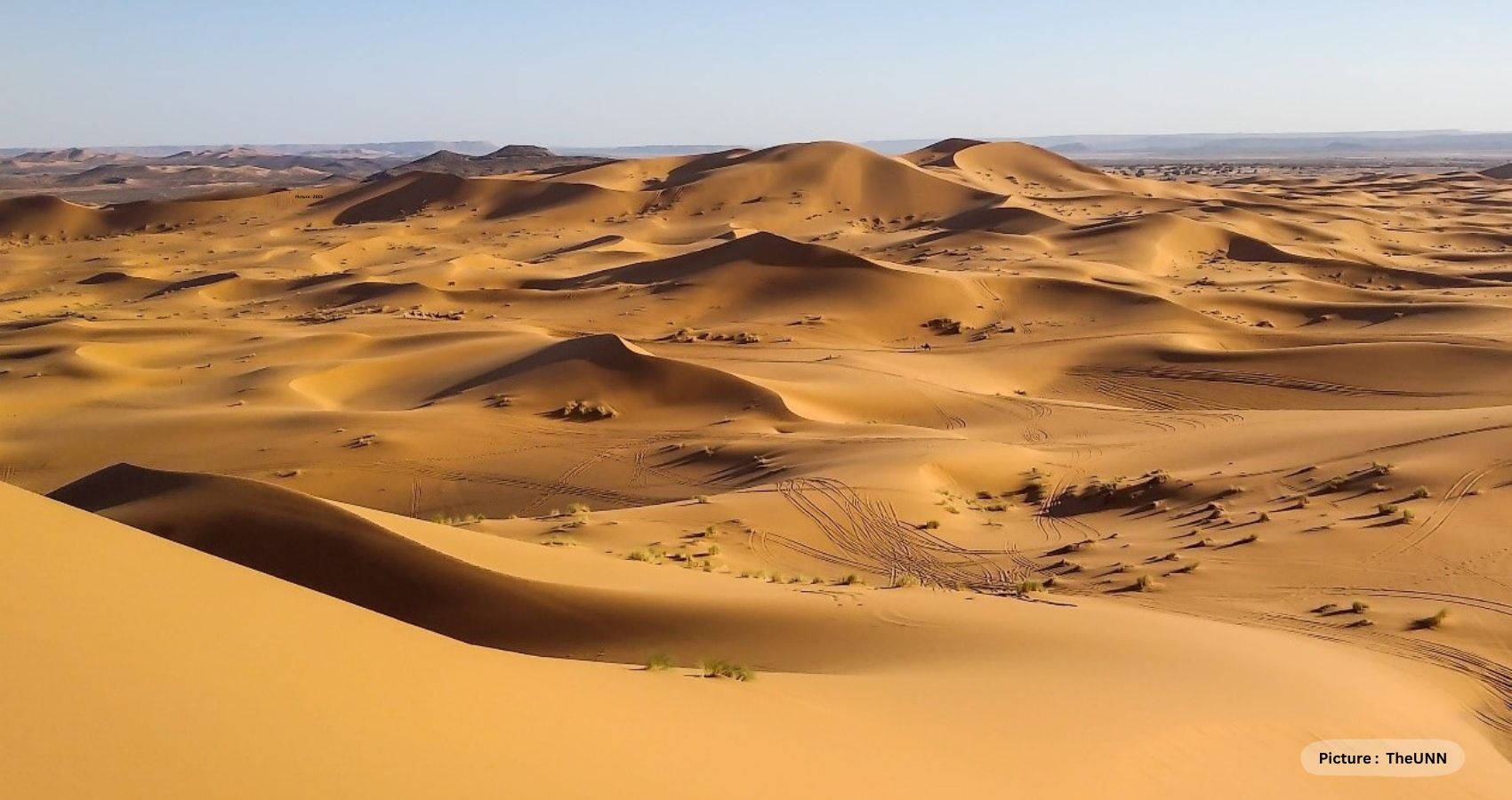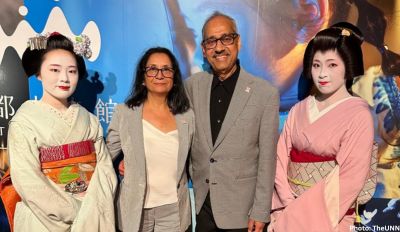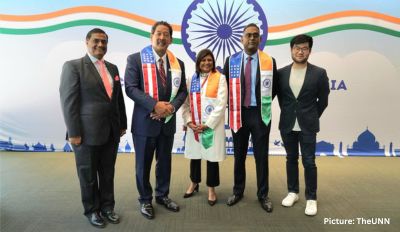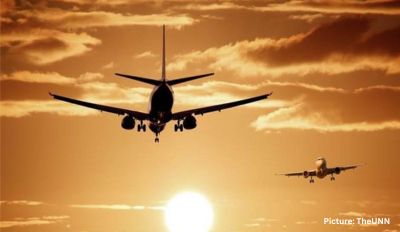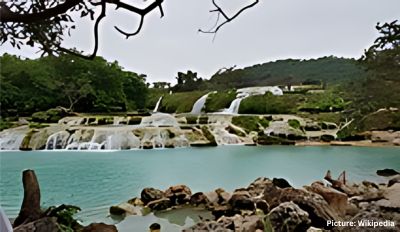The RSF found me in my home. I was not outside trying to buy food in the middle of the shooting. I was in my living room, all alone, under my bed, waiting for my husband my brother and my two sons to return home. The door exploded outwards in the way a pipe bursts fully in the midst of a rupture. That was when I knew that strangers were in my house. My mind recognised it but my body did not until the seven eight nine ten men surrounded my bed, dragged me away from it, and started shouting at me.
Father was not from the city of Adré. He was not actually from the city of Abéché either, as he had chosen to settle there some thirty years ago, Abéché being the fourth largest city of Chad, and one of the few industrial centres of the country. But at the moment he was commuting every day, four hours towards Adré and four hours back to his home in Abéché, because Chad’s neighbour Sudan was having one of its greatest humanitarian crises, and help was needed for the refugees coming from the other side of the border. For the last half year—Father himself could not believe it, a full half year—the paramilitary army and the royal forces of the Sudanese army were fighting amongst themselves to gain control over the country. Entire swathes of the country had become a battlefield as the two armies attacked themselves, caring little about the civilians whom they would later have to serve. Father was not Sudanese; he had no idea how many people had been killed.
Girar is a reader-supported publication. To receive new posts and support my work, consider becoming a free or paid subscriber.
They shot my brothers, all three of them. They shot my father too. They had no reason to shoot us. We have nothing to do with the war. Yani we are civilians. I thought they were going to shoot me too. But they let me live. They kept going forwards in their truck with their guns up shouting praise to Allah. They left me on that road. They let me live. But I dropped my groceries. I fell to the ground on my knees. I looked at my brothers and I looked at my father and tears came without me thinking. I wanted them to shoot me too. Why did I have to live?
But the effects on Adré were obvious. Adré was just a small little town next to the border. The houses were settlements, and here or there were busy streets selling chopped-up lamb, rice, eggs, and dried beans. Only a handful of streets were paved; most of the town was empty land and dust.
I am just a fifteen-year-old. I don’t want to see my mother trip and fall, let alone be raped by a group of men, one by one. But the RSF forces came and took their turns on her and forced me to watch at gunpoint. I thought they were going to kill me, but they didn’t. I wish they had killed me. I would be more of a man now if I hadn’t had to see my mother used like a set of napkins.
In that dust now was tent upon tent, blanketing the dust in patches. Under those tents were the people who had spilled over from various parts of Sudan escaping the violence. These were people who did not have the chance to think about where to go and why. They saw that there was shooting, they saw that people were being killed, and they simply ran—eastwards, westwards, southwards, and northwards. They crossed a border because that was what they had to do to survive. Which border they crossed, which country they ended up in, what would happen to them once they reached that country…those were all questions to be answered later.
I am a little boy of nine. But when the paramilitary soldiers saw me, they came in a group. They took down my shorts. They took down their pants. One by one they forced themselves on me. And they did not stop, no matter how much I was sobbing.
These people were now in the country of Chad. If one looked at one side of the border versus the other, one would see indistinguishable dust upon dust upon dust. One could not identify one side as Sudan, or the other as Chad.
After the seven or eight men raped me they threw me out of my apartment. They ransacked literally everything. They took the credit cards of my husband, they took my cups and bowls, they took our money. They took everything and left. I stayed there on the floor, bleeding. I did not want to get up. But I also knew that I had nothing left. The only thing I could do was walk. Despite the unbearable pain in my vulva I was going to have to get dressed, walk somewhere, anywhere, and leave. That was the only way I could survive.
But one side was called Chad and one side was called Sudan, and Father was on the Chadian side, working as a doctor alongside volunteers and workers from the Red Cross and Doctors Without Borders. He went from person to person, each one sitting on the ground huddled in a group of six with their family members, taking their temperatures, checking their vitals, handing out water or essential medicines. He rarely had the time to ask their names or learn their stories.
My name is Hiba. I did not even know if you wanted to ask for it. I am not from here and I am also not from Khartoum. I am from Darfur. In Darfur we had little, but we had a hut, we had our cots, we had our family. Now we sit on the earth with the cows and the flies. I don’t want to be here. I want to be home. But what can I do? The soldiers came and burned everything. I should be grateful to be alive. I should be grateful to be able to sit on this tarp on this patch of dust and have that also. But I am not happy and I am not grateful. There was no reason why my home should have been destroyed in front of me. I want it all to come back to me. I want my home.
There were trembling children covered in dust and crying with hunger. Many were so shocked by the explosion of a bomb near their house or shooting over their heads that their ears did not work and their eyes had lost all ability to focus, all before they had reached the age of five.
I wish I had not been born in Khartoum. I always wanted to be British. Why didn’t my parents go when my father got that job offer in Birmingham? They chose to raise me here so I could be one with my language and heritage. And now I have no parents. I am seventeen, having to start a life over for myself, with no one, in a new land, where I know nobody.
Meanwhile, the adult men and women sat quietly, waiting for water and food to come. They bent down to pray at the allotted five times a day, as if the call to prayer was the only thing they could do to maintain control over their lives. Once in a while they would break the silence to speak to Father. They had gone through something terrible, and they needed someone to listen, whether it was someone they felt close to or not.
I have seen people walk by and then suddenly be full of bullets. I have seen people fall out of their apartments after a mortar hit and destroyed entire parts of buildings. I have seen corpses on the ground, sometimes naked, sometimes violated, sometimes picked at by the vultures. But I have not stopped to think about any of them. I kept on moving. I did not turn around to make sense of it.
Father listened to them because the situation demanded it. But he never responded because he knew that was not his prerogative. His job was to check the refugees, to ascertain that no one was hurt or was on the precipice of dying.
I am a woman from Sudan, but first and foremost I am a woman, and I am suffering.
So many women had been raped. So many women had stories to tell that made it hard for Father to work. That so many women had been violated by so many men, had been forced to see their loved ones shot while the soldiers were in the middle of their act, and had had to walk out and find help despite what had been done to them was difficult for him to hear, especially because he heard it every day, all the time, too many times.
When are you coming home? When are you coming back to me?
What made it especially different for him today was the fact that his mother had called, finally having enough energy to make a call herself. His mother was succumbing more and more each day to dementia and Parkinson’s. Every week when they talked, he noticed how hard it was for his mother to form a sentence. What used to be ten minutes of conversation became seven, then five, then a minute. Today this morning when his mother had spoken, she could barely give enough information to last a paragraph. The sentences were also broken.
I…am…happy…I am…good…you…are…safe…I…am…happy
Basic sentences, without any sort of real meaning. There was no longer a sense that his mother was connecting with anyone while she spoke. She was just trying to say simple things, and even that was too much for her.
I love…I love my…without son…I am without son…my son…so…
Father tried to talk to his brothers about it, but they didn’t see any difference. They were from the village, didn’t have the sort of medical education Father did, and spent every single moment with their mother taking care of her. The more time passed, the more Father felt guilty for not being there, for pursuing a decently built-up home in a suburb of a big city and a life for his family rather than giving back to the people who had sacrificed everything to give him these chances. Often Father heard this guilt reflected back to him through the voices of his brothers, but today he was having a moment of clarity. Today it was his own voice saying something to him: take care of your mother in the last days of her life. He could do this at his home and treat her with the professional knowledge of a doctor. He could provide a clean house with ample space where his mother could actively recuperate, along with the love and attention of a son.
You are not there for us. But then again I expect little or nothing else, because that is what I have gotten used to.
Seeing how much his mother was declining, and listening to her today on his drive to Adré, was tough. The thought of women who had limbs and body parts taken from them by the war mingled with his thoughts of his mother’s broken sentences.
Come home. That’s the only place that matters. That’s the only place I want to see you. Come home.
Father was a doctor for a reason. He felt called to serve those who were in need. There were so many people in need of someone like him, in Chad, in Sudan, in other corners of this world. If he had to choose between these women and his mother, it seemed obvious what the moral decision should be: to help these refugees as if they were relatives or fellow citizens from Chad.
Ommi. When will I see you again?
There was also this woman, his mother, who had chosen to make him her world.
As Father went from family to family, child to child, woman to woman, he saw his mother in each and every one of them. It would be in the way the mother fed their rations of bread and goat stew to their children first, in the same exact way his mother would take pieces of goat meat and feed him from her hand to his mouth.
I’ve tried to be around for so many people. When am I going to stop making excuses and be there for my own family?
It was time for a decision to be made. He would go to Doctors Without Borders and the administration of the hospital that he worked under to inform them that he needed to take a week off. They would not want that; the last six months had been horrible, and they needed doctors like Father to help out.
My name is…Fatima…please…listen… to me…my son…
Father was going back home, towards his village in the Batha town of Oum Hadjer. He was going to talk to his brothers and convince them that the city would be the best place for their mother, in her declining health, to get the best medical care.

